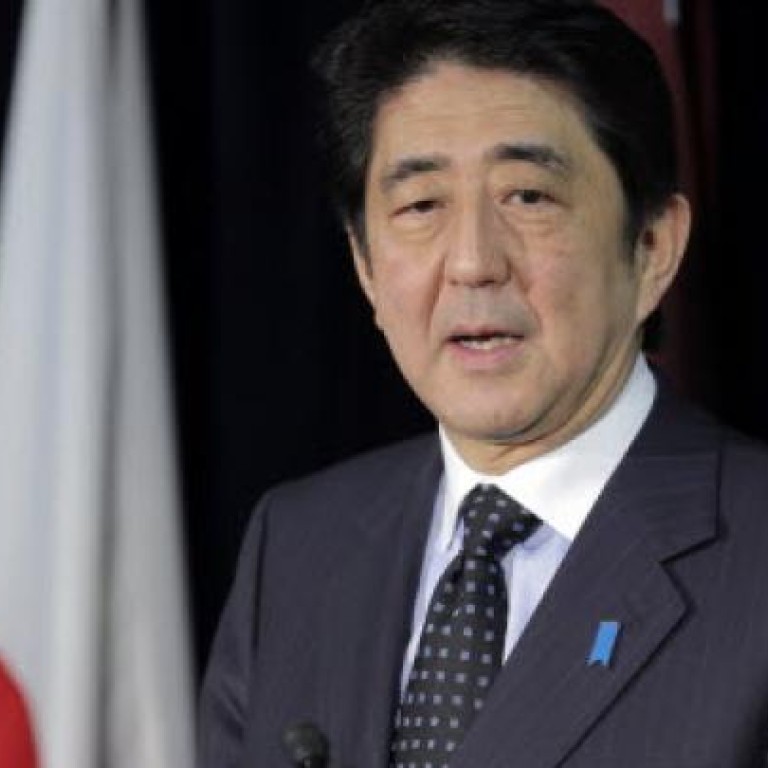
Japan’s Abe says strong economy tops his platform
Former Japanese Prime Minister Shinzo Abe said he would spearhead an economic recovery and strengthen Japan’s military if his conservative party regains control in elections next month.
“We will recover Japan,” Abe told a news conference at his party headquarters in Tokyo. “We will rebuild the economy.”
Abe, head of the opposition Liberal Democratic Party, is considered the most likely candidate to become prime minister following the December 16 elections. Polls indicate his party will win the most seats but will need to form a coalition to govern.
He promised to achieve 3 per cent economic growth through intensive reform programs over the next five years. He also set a 2 per cent inflation target, promising to introduce bold monetary policies to get the country out of deflation.
Prime Minister Yoshihiko Noda dissolved the lower house of parliament on Friday, paving the way for elections. His ruling party is expected to give way to a weak coalition government divided over how to tackle Japan’s myriad problems. The biggest tasks are reviving the stagnant economy, rebuilding after the crippling March last year earthquake and tsunami, and determining Japan’s energy policy after the disasters-led Fukushima nuclear crisis.
Abe, 58, said he will introduce new economic measures to fight deflation and correct the strong yen, which is hurting Japanese manufacturers and exporters. He promised to compile a large-scale budget to create jobs, promote investment and make Japanese manufacturers more competitive.
Abe also said he would set up a national security council at the prime minister’s office to beef up Japan’s defence and security amid an escalating territorial spat with China over a set of East China Sea islands. He singled out North Korea, China and Russia as regional security concerns and said his party would increase the defence budget and strengthen the coast guard around the disputed islands.
Abe, the grandson of a World War II minister and convicted war criminal who later became prime minister, has angered China and South Korea because of his sympathetic views toward Japan’s militaristic past.
A staunch supporter of the Japan-US alliance, he renewed his call for a revision of Japan’s war-renouncing constitution to allow Japanese troops to defend American troops in case of foreign attacks on Japan.
Abe resigned as prime minister in 2007 after a year in office due to a stomach ailment.
His party, which suffered a bitter defeat by Noda’s Democratic Party of Japan three years ago, has led recent polls. The DPJ has lost support largely because of its handling of the Fukushima nuclear crisis and its doubling of the sales tax.
Due to party infighting and policy disagreements, the DPJ has lost dozens of members since the summer. Former DPJ Prime Minister Yukio Hatoyama announced his retirement from politics Wednesday after failing to gain the party’s backing to run in next month’s elections due to his opposition to tax reforms.
If Noda’s centrist party loses the elections, Japan will get its seventh prime minister in six and a half years.
Japan is in political transition with a merry-go-round of leaders and mushrooming fringe parties. Nearly half of all voters are undecided and emerging “third force” groups are expected to affect post-election alliances.
